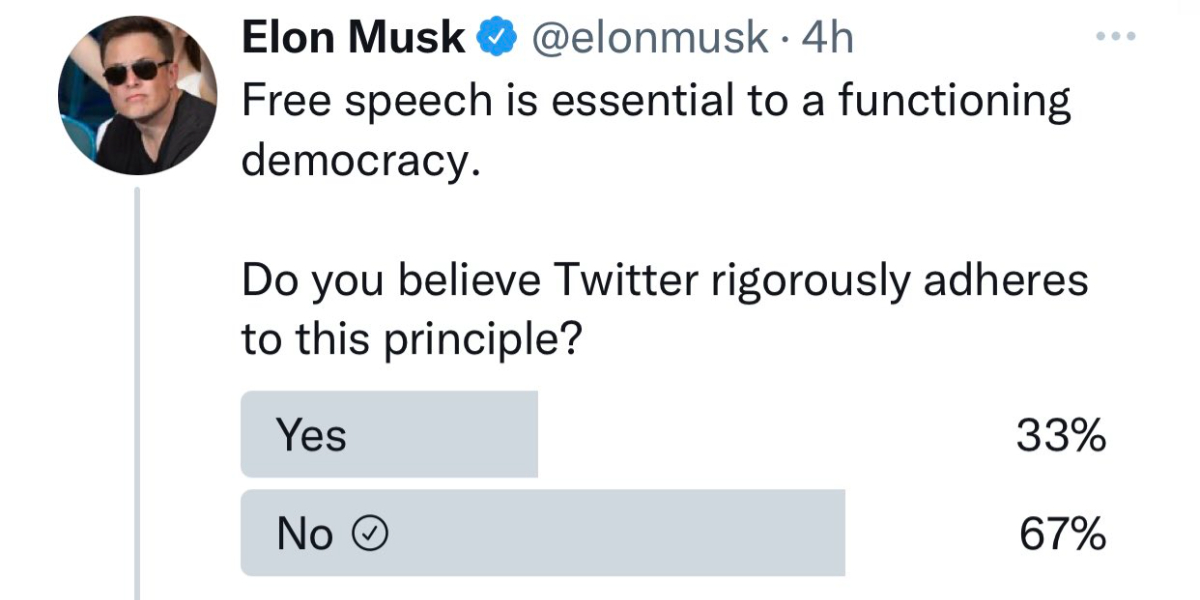Thursday morning, Elon Musk presented to shop for Twitter to keep unfastened speech.
“I invested in Twitter as I consider in its capacity to be the platform without spending a dime speech around the globe, and I trust free speech is a societal vital for a functioning democracy,” wrote the Tesla and SpaceX billionaire — who lately received a 9.2 percent stake in Twitter — in a filing. “However, since making my investment I now comprehend the enterprise will neither thrive nor serve this societal vital in its modern shape. Twitter needs to be converted as a personal agency.”
It’s not clean how this gambit will play out, however there’s additionally a extra fundamental query: what does Elon Musk think loose speech is, and who’s threatening it? Free expression is a cornerstone of an open society, and with governments the world over eyeing crackdowns on internet platforms, there’s a complicated interaction among distinct visions of what must be allowed on line. But in spite of his sweeping assertion, Musk’s eye seems nearly totally focused at the some distance smaller query of Twitter’s personal internal guidelines.
In 2011, Twitter’s former CEO Dick Costolo asserted that Twitter belonged to “the loose speech wing of the free speech birthday party,” a phrase that’s been invoked by means of critics of the platform’s moderation calls ever in view that. In the context of that generation, unfastened speech controversies mostly involved Twitter’s courting with governments. The platform was earning plaudits for letting activists arrange below the hazard of political repression in Egypt and other nations. Costolo boasted about his combat with the United States government over account facts related to WikiLeaks, which turned into under research after leaking diplomatic cables.
In a TED interview with Chris Anderson on Thursday, Musk’s worries had been extra nebulous — and directed nearly absolutely at Twitter itself. Musk didn’t show an awful lot urge for food for preventing international speech regulations — noting that “in my views, Twitter must fit the legal guidelines of the united states of America.” Instead, he raised the specter of tweets being “mysteriously promoted and demoted” by using Twitter’s sorting algorithm, which Musk says ought to be posted publicly. (Former Twitter CEO Jack Dorsey has also envisioned a version with more obvious algorithmic recommendations.)
“It’s just really important that people have the reality and the perception that they’re able to speak freely within the bounds of the law,” Musk told Anderson. “I think broadly, the civilizational risk is decreased the more we can increase the trust of Twitter as a public platform.”
Musk turned into reflecting a common assumption that Twitter is a “city rectangular” that’s become the primary arbiter of what people can say. But governments round the sector nevertheless have a big say in what receives said and the way. In the years on account that Costolo’s comment, on-line speech legal guidelines have proliferated. Multiple countries have passed “fake news” regulations which might be (in idea) alleged to crack down at the spread of fake on line statistics, and a few have threatened to ban platforms that don’t comply. European privateness rules instituted a “proper to be forgotten” that calls for structures to do away with embarrassing data published on-line beneath positive occasions. India implemented a strict criminal regime for social media companies, requiring local offices to appoint authorities liaisons and, at one factor, raiding Twitter’s offices.

















